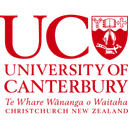Learn effective methods to teach computational thinking to children aged 7-12+. Master unplugged and hands-on teaching approaches.
Learn effective methods to teach computational thinking to children aged 7-12+. Master unplugged and hands-on teaching approaches.
This comprehensive course equips educators with strategies to teach computational thinking to young learners using both unplugged and plugged-in approaches. Based on the CS Unplugged curriculum, participants learn to use readily available classroom materials to engage students in computer science concepts. The course emphasizes practical teaching methods, historical context, and real-world applications while connecting computational thinking to everyday experiences and future societal impacts.
Instructors:
English
English
What you'll learn
Master teaching computational thinking through engaging unplugged activities
Develop skills to explain binary basics and digital representation to young learners
Learn techniques for teaching error detection and correction concepts
Understand how to evaluate and teach human-computer interaction
Create effective learning experiences using everyday classroom materials
Skills you'll gain
This course includes:
PreRecorded video
Graded assignments, exams
Access on Mobile, Tablet, Desktop
Limited Access access
Shareable certificate
Closed caption
Get a Completion Certificate
Share your certificate with prospective employers and your professional network on LinkedIn.
Created by
Provided by

Top companies offer this course to their employees
Top companies provide this course to enhance their employees' skills, ensuring they excel in handling complex projects and drive organizational success.





There are 5 modules in this course
This course provides educators with comprehensive training in teaching computational thinking to young learners. Using the CS Unplugged approach, teachers learn to engage students with computer science concepts through hands-on, unplugged activities using common classroom materials. The curriculum covers fundamental computing concepts including binary representation, error detection, and human-computer interaction. The course emphasizes practical teaching strategies that develop student creativity and agency while building foundational computational thinking skills.
Introduction to Computational Thinking
Module 1 · 5 Hours to complete
Parallel Sorting Networks
Module 2 · 5 Hours to complete
Binary Representation
Module 3 · 5 Hours to complete
Error Detection and Correction
Module 4 · 5 Hours to complete
Human Computer Interaction
Module 5 · 5 Hours to complete
Fee Structure
Instructors

1 Course
Innovative Computer Science Education Pioneer
Professor Tim Bell has distinguished himself as a transformative figure in computer science education at the University of Canterbury, where his groundbreaking "Computer Science Unplugged" project has revolutionized how computer science concepts are taught worldwide, making complex topics accessible through activities, games, and magic tricks without using computers. As a faculty member in the Department of Computer Science and Software Engineering, he teaches courses on computational thinking, computer science fundamentals, and digital technologies, while his teaching portfolio encompasses both university and K-12 education. His expertise extends to text compression algorithms and computer music, reflecting his unique ability to blend technical expertise with creative teaching approaches. Bell's educational impact has earned him numerous prestigious accolades, including the ETH Zurich ABZ medal for CS Unplugged, the ACM SIGCSE Outstanding Contribution to Computer Science Education award, and his appointment as a Companion of the New Zealand Order of Merit in 2024. His teaching materials, translated into over 20 languages, demonstrate the global reach of his educational methods, while his active involvement since 2008 in designing and deploying digital technologies curriculum in New Zealand schools has shaped national education policy. Adding a personal touch to his academic profile, he is also an accomplished musician who plays instruments with black and white keys, embodying his philosophy of making learning both engaging and accessible.

1 Course
Dedicated Computer Science Education InnovatorTracy Henderson serves as a Project Manager and Content Wr
Tracy Henderson serves as a Project Manager and Content Writer in the Computer Science Education Research Group at the University of Canterbury, where she focuses on developing innovative approaches to teaching computer science and computational thinking to primary school students. With over 20 years of teaching experience, she plays a vital role in several significant initiatives, including the DTHM for kaiako project, which creates resources for teaching Digital Technology and Hangarau Matihiko in New Zealand schools. As the secretary of Digital Technologies Teachers Aotearoa (DTTA), she actively contributes to shaping digital technology education across New Zealand. Her passion lies in creating inclusive learning opportunities that help students see themselves in Digital Technologies, with a particular interest in exploring creative teaching methods such as using conductive paint and LEDs. Her work encompasses developing educational resources, managing projects, and supporting teachers in implementing computational thinking in their classrooms. Henderson's expertise extends to various digital technology education projects, including CS Unplugged and the National Digital Readiness programme, where she focuses on making complex computer science concepts accessible to young learners through engaging and innovative teaching methods
Testimonials
Testimonials and success stories are a testament to the quality of this program and its impact on your career and learning journey. Be the first to help others make an informed decision by sharing your review of the course.
Frequently asked questions
Below are some of the most commonly asked questions about this course. We aim to provide clear and concise answers to help you better understand the course content, structure, and any other relevant information. If you have any additional questions or if your question is not listed here, please don't hesitate to reach out to our support team for further assistance.



